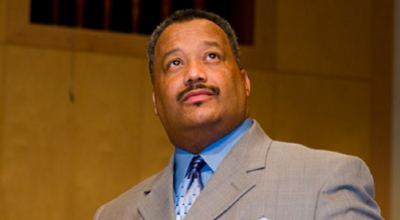In the early 1960s, when I was too young to understand the turmoil of the Civil Rights era, some men in our Southern Baptist congregation in Montgomery, Ala., asked my dad to stand outside our church with a baseball bat on a Sunday morning in case blacks showed up to protest. Thankfully, my father refused.
Later, a Southern Baptist relative sat me down and tried to explain the turbulence. She said sternly: “Lee, the white people have their church and the black people have their church, and that’s the way the Lord wants it.”
I remember feeling an alarm bell go off inside me when I heard those words, even though I was too young to understand this grown-up subject of racism. Even a kindergartner knows God doesn’t divide people. Maybe I learned that truth from a song we sang in my Baptist church. It said: “Jesus loves the little children/ All the children of the world/ Red and yellow, black and white/ They are precious in His sight.”
Fast-forward to June 19, 2012, when delegates at the Southern Baptist Convention’s meeting in New Orleans voted to end their racist past by electing their first black president. The choice of 55-year-old Fred Luter Jr., pastor of Franklin Avenue Baptist Church in New Orleans, was even more historic because it occurred on “Juneteenth,” the day some African-Americans celebrate the end of slavery in America. That was no coincidence.
What happened this week in New Orleans is extraordinary. After all, the Southern Baptist Convention was formed in 1845 because Baptists in the South defended slavery and objected to Northern abolition movements. In 1995 the SBC publicly repented for defending slavery and segregation, but the selection of a black president this week surely puts the nail in the coffin of Baptist racism. A spiritual stronghold is being torn down before our eyes.
Luter, whose church was destroyed by Hurricane Katrina in 2005 and then was rebuilt, told Southern Baptist delegates: “My election is a genuine, authentic move by this convention to show our doors are open to all. For years we’ve been talking about racial reconciliation. Now we’re putting our money where our mouth is.”
I know many people are pooh-poohing this week’s vote, or scoffing at the fact that it took 167 years for Southern Baptists to take this stand. But before we accuse our Baptist brothers of foot-dragging or symbolic posturing, let’s examine our hearts and make sure we don’t have logs of prejudice in our own eyes. Racism is not just a Baptist problem. It’s time for every sector of the American church to ask some hard questions:
1. Why are so many predominantly white congregations opposed to black leadership? In many charismatic and Pentecostal groups today, black leaders are the rare exception. And because of the divisive political issues triggered by the election of President Obama, racial walls in the church have been reinforced rather than weakened during the past four years. When our generation gives an account to God for the way we handled our racial tensions, we will not be able to blame it on Mr. Obama. God wants His church to lead the way in transforming society.
2. Why do black churches still maintain an exclusive black identity? Many younger Christians today are asking the forbidden question: Why do we have to have black churches, white churches or Hispanic churches? Isn’t it time to dismantle the systems that have kept us apart? Might it be possible, for example, for the Church of God in Christ to merge with a predominately white denomination like the Assemblies of God in order to dramatically demolish our divisions? I won’t hold my breath for that to happen. But I suspect that by the time my grandchildren are grown, the idea of an all-black or all-white church will seem bizarre.
3. Why do so many churches today neglect the needs of immigrants? Our nation’s demographics are changing rapidly, but many churches cling to their racial and ethnic identity because of fear while ignoring foreigners who need Christ’s love. Yet Jesus actually had strong words for religious people who ignored strangers (see Matt. 25:31-46). I believe He is waiting for us to renounce our insensitive demands to “make them all speak English” so that we can begin to demonstrate true compassion to people who are seeking freedom and opportunity within our borders.
Although I’m no longer a Southern Baptist, I’m dancing for joy over what happened in New Orleans this week. I just hope it is more than a momentary victory. I pray this historic breakthrough will inspire every one of us to bury all forms of religious segregation once and for all.
J. Lee Grady is the former editor of Charisma and the director of The Mordecai Project. He is the author of several books including The Holy Spirit is Not for Sale. You can follow him on Twitter at leegrady.
See an error in this article?
To contact us or to submit an article






















